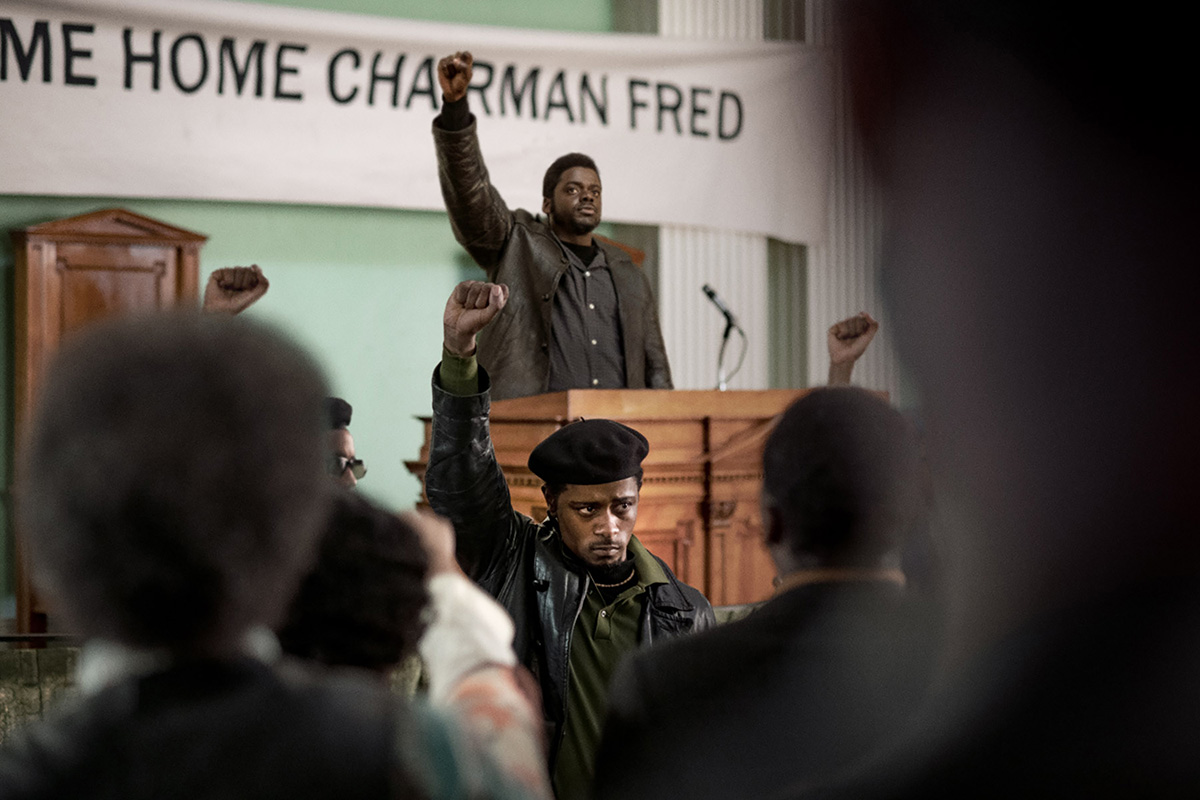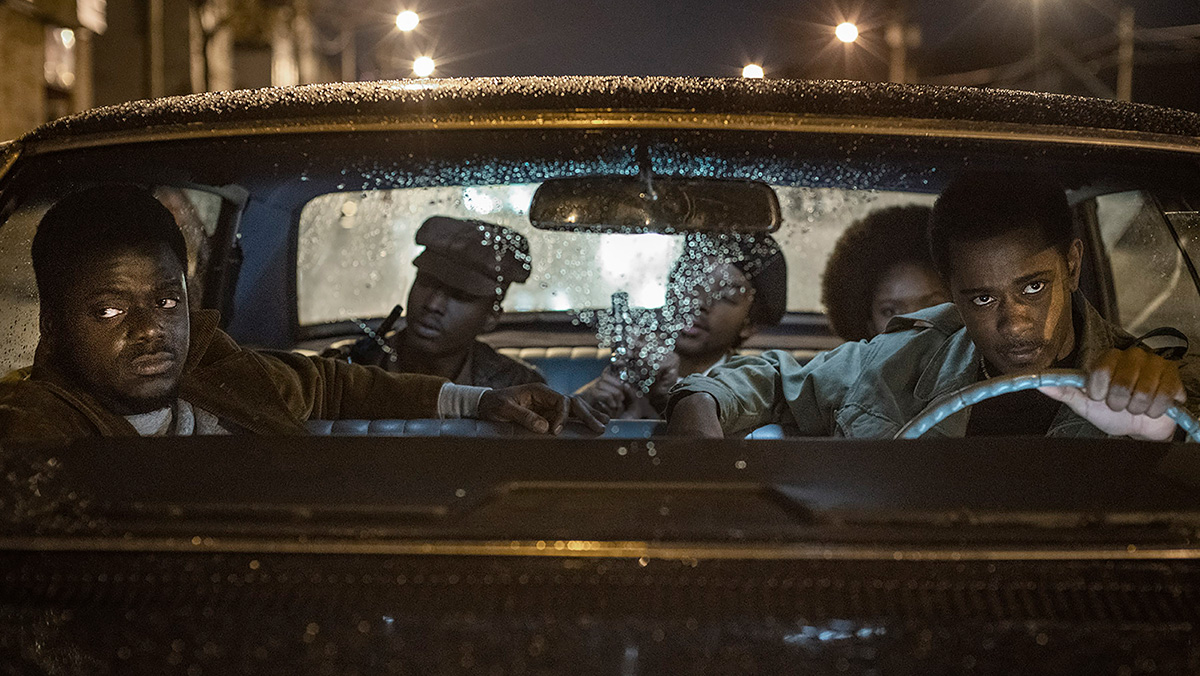Shaka King’s roommate and best friend Kristan Sprague ’01 was a film major whose junior-year production courses required a partner. King (’01), who had fulfilled his political science major requirements, agreed to join him. It wasn’t long before King recognized that he’d found a new calling.
His commitment to filmmaking is evident in Judas and the Black Messiah (Warner Bros.), King’s first studio film, which is generating considerable Oscar buzz. The true story of the government’s harassment and assassination of the dynamic Black Panther Party leader Fred Hampton (Daniel Kaluuya) focuses on a wayward young Black man named William O’Neal (LaKeith Stanfield) blackmailed by the FBI into infiltrating and undermining the Black Panthers. It releases in theaters and on HBOMax this Friday, February 12.

“This was part of a much wider conspiracy spread across a number of movements, not just the Black Power movement, to crush voices of dissent,” says King, who still lives in Brooklyn, where he was raised. While Vassar was formative in his filmmaking, his world views were informed less by his poli sci courses and more by his parents and by seeing the inequities of life in America growing up in Bedford-Stuyvesant while going to a largely white private school in Bay Ridge.
Following Vassar, King attended NYU film school. He directed the Brooklyn stoner dramedy Newlyweeds in 2013, a short film Mulignans in 2015 (Sprague was editor on both), and various TV episodes. This is his second feature.
King strives for the veracity of lived experience in his features. He is a meticulous researcher but says that, like an actor, you have to eventually “let go and let the creative spirit enter you and guide you to make the right decisions with that knowledge at your core.”
King easily juggles the contradictions of his art, always aware that a film reckoning with America’s brutal racial history is still entertainment and a business venture. So after he nailed the details, he felt comfortable adding directorial “touches and flourishes” because, as important as Hampton’s story is, he didn’t want to deliver a dry history lesson. “You’re walking a line—you want to present realistic conditions so you feel grounded, but people want entertainment, especially in a movie as harrowing and devastating as this can be.”
Dominique Fishback, who plays Hampton’s fiancée, Deborah Johnson, praises King’s “humility and generosity,” saying he invited everyone to contribute. “He was hearing from so many voices but he always made time for the artists,” Fishback says. King let her add crucial lines, especially in a memorable scene where Hampton and Johnson together recite a Malcolm X speech.
King also allowed Hampton’s family to have input. There were some scenes Fred Hampton Jr. had approved in the script that played differently with live actors and he’d suddenly object mid-shoot. “On the fly I’d have to reshape that scene but also think about 20 things that happened later and stuff we’d already shot,” King says. “But it was healthy for the storytelling. And sometimes Fred would have to come to grips with the fact that some things he’d have to live with.”

There were times when King broke from history for dramatic purposes, but there were pragmatic choices as well. Kaluuya and Stanfield are a decade older than their characters. Critics have questioned King’s casting choices, but the lead actors have name recognition, having appeared in such popular movies and television shows as Get Out and Atlanta, as well as acting chops. (Kaluuya has been nominated for a Golden Globe in the Best Supporting Actor category for his performance in the film.)
“Tell me who else could have gotten this movie greenlit,” King asks. “There are a million young white actors—Megan whatever and Zac whoever—from teen movies who could get a movie made. But Hollywood is not invested in the development of young black movie stars.”
To compensate for the age difference between Stanfield, 29, and O’Neal, a terrified teen manipulated by the FBI, King left out some of O’Neal’s more serious misdeeds and relied on Stanfield’s empathetic qualities as an actor to maintain the movie’s balance.
Documentary footage adds heft to the storytelling in Judas and helps the audience understand the period.
King brought Sprague onto the project as an editor and says having him at his side again was magical. “As seniors, Kris and I made a documentary together called Stolen Moments about the effects of global capitalism on rap music,” King says. (In the pre-YouTube world, they borrowed movies from the school library and “sampled” clips to make “a visual mixtape.”)
“As we were editing Judas, I said to him, ‘It’s crazy, but this is the same stuff we were doing at Vassar!’”
